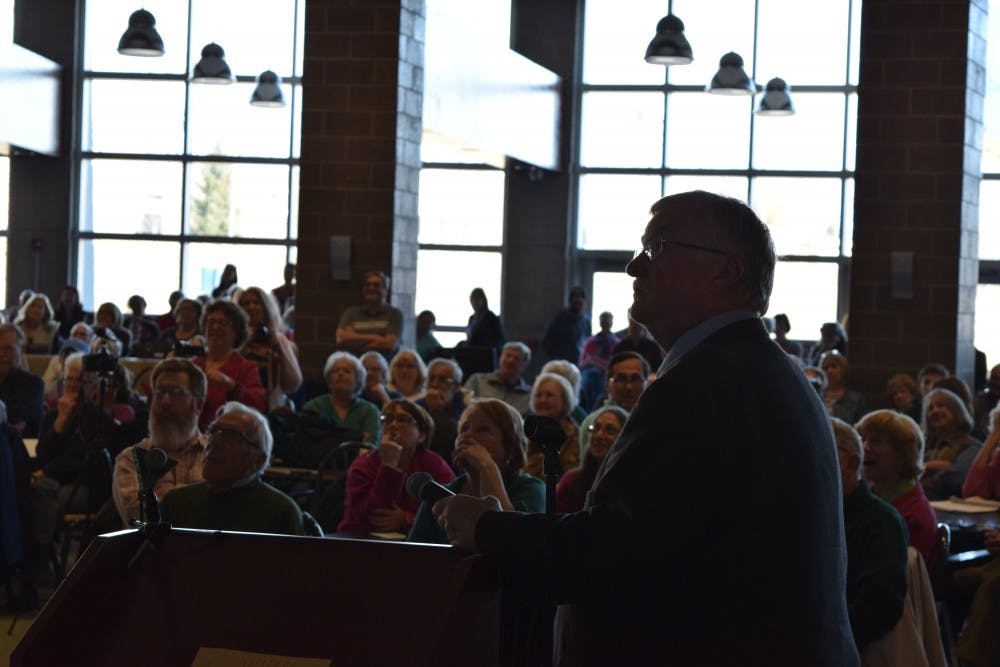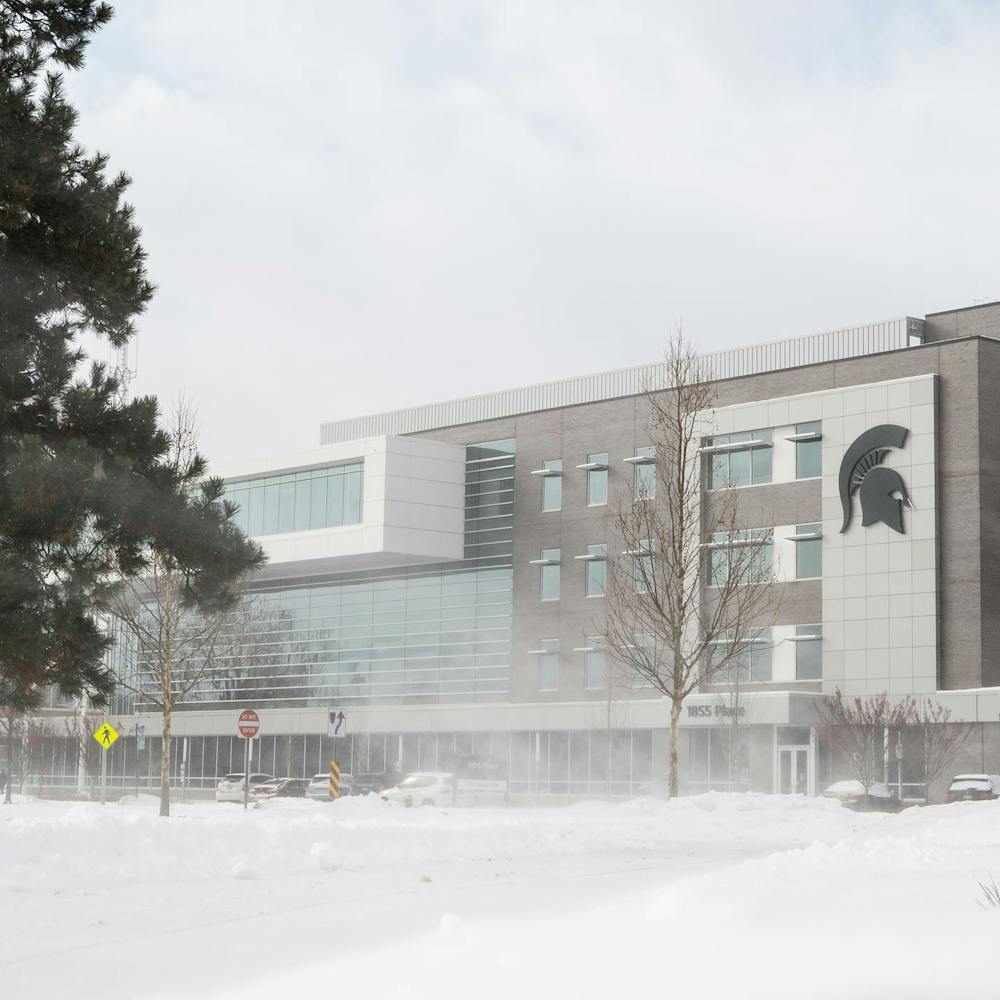A forum to educate and mobilize voters to end partisan gerrymandering drew a capacity crowd at East Lansing High School cafeteria Sunday afternoon. Based on the room's capacity, approximately 600 people were in attendance.
Gerrymandering, or the practice of legislatures drawing congressional districts with the goal of disenfranchising opposing voters, has become a much-hated political practice its detractors say essentially renders elections pointless.
“I’ve just been appalled by the concept of gerrymandering ever since I heard about it in grade school,” DeWitt resident Sandy Thomasson said. “It just upsets me that such a thing should exist, and excited me to find out that there were other people that were coming to try to do something to correct it.”
Gerrymandered districts are typically drawn to either split concentrations of opposing voters among multiple districts or will be drawn in an almost comically-distorted fashion to limit the voting power of one group to one district. Michigan's 14th Congressional District, which zig-zags through Detroit and leaves a Farmington-shaped hole, was cited during the forum as a particularly egregious example targeting black voters.
“In most general elections, your vote doesn’t matter because the decision has already been made, the winner of the primary in most elections is going to be the winner … and the majority party for the district is going to win the general,” Michigan Election Reform Alliance Redistricting Chair Walt Sorg said. “The East Lansing district's a perfect example, (69th District Rep.) Sam Singh knew he was re-elected the day he was re-nominated. He didn’t have to campaign, he’s a great representative, he’s a good friend and all of that, but the reality was the day he was nominated he won, and the vote in November for state representative if you were in this district was meaningless.”
Speakers at the forum included Sorg, League of Women Voters of Michigan President Judy Karandjeff as well as representatives from the ACLU and CountMIvote.org, a site advocating for redistricting reform Sorg said was a good way for concerned students to get involved. Karandjeff said the crowd was the largest she’d ever addressed on the issue.
“There were a lot more people that were interested in this issue than I thought would be here on such a beautiful day,” Karandjeff said.
The forum not only drew politically-minded Michiganians from the Lansing area, but further out as well. Kawkawlin resident Pam Saddler traveled from the Bay City area, and said she will take the information she learned at the forum back to local groups.
"I want my vote to start counting, and I would like to find someone that's an organization that's very dependable, that can help me petition drive, whatever I need to do to help my vote actually count," Saddler said.
The forum concluded with a town hall question and answer session, with discussion centering on how to take action and the ideal solution to advocate for. Discussed at the forum was a potential ballot initiative to amend the Michigan constitution, essentially reforming redistricting without approval from legislators. Michigan law requires signatures in support of the proposed amendment equal to 10 percent of the ballots cast in the last gubernatorial election, gathered through about half a year, to become part of the constitution.
Sorg said a ballot initiative could feasibly begin a week from now, but Karandjeff said efforts aren’t quite there yet.
“We have a lot of education and outreach to do … there’s a lot of work that needs to be done before that’s going to happen,” Karandjeff said.
Support student media!
Please consider donating to The State News and help fund the future of journalism.
Discussion
Share and discuss “Anti-gerrymandering forum draws capacity crowd at E.L. High School ” on social media.







